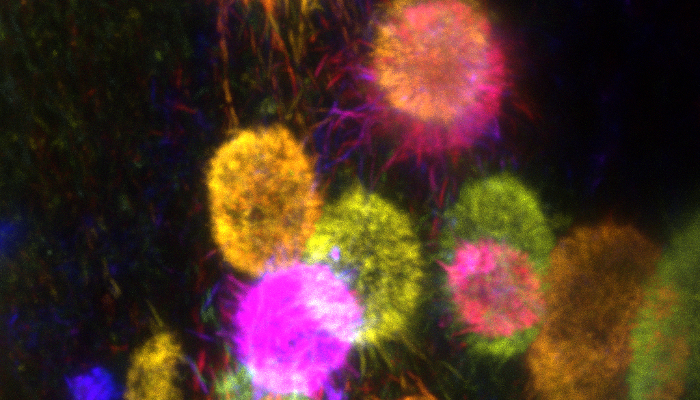Cell Biology
A defining feature of living systems is their immense complexity compared to non-living structures. A case in point is the cell, the fundamental unit of life. Cells have an intricate internal organisation, yet this organisation needs to be dynamic and adaptable for cells to function. Increasing complexity further, cells interact with each other to form tissues, organs and organisms and constantly interact with their environment through defined responses to make life possible.
To elucidate the fundamental principles and mechanisms of these processes, it is necessary to experimentally identify and probe the underlying molecular machinery at widely different scales. We pursue this challenge through visualising molecular assemblies within cells down to nanometer resolution, following their dynamic behaviour in space and time and establishing their molecular mechanisms through functional interference. At a larger scale, our research reveals the interplay, organisation and function of cells in tissues, organs and organisms, as well as the governing principles of how organisational complexity arises and how the environment shapes and influences cellular behaviours and responses.
An increasing understanding of these processes will allow us to engineer biological systems to address pressing economic needs and to establish targeting strategies aimed at extending the healthy lifespan of humans. The pursuit of this goal forms a core motivation driving our cell biology research theme. Our internationally competitive research environment with world-leading research groups and state-of-the-art facilities provides a setting that encourages and fosters excellence in the cutting edge approaches taken by us.
 Nucleation of the actin cytoskeleton in the Drosophila female germline
Nucleation of the actin cytoskeleton in the Drosophila female germline
